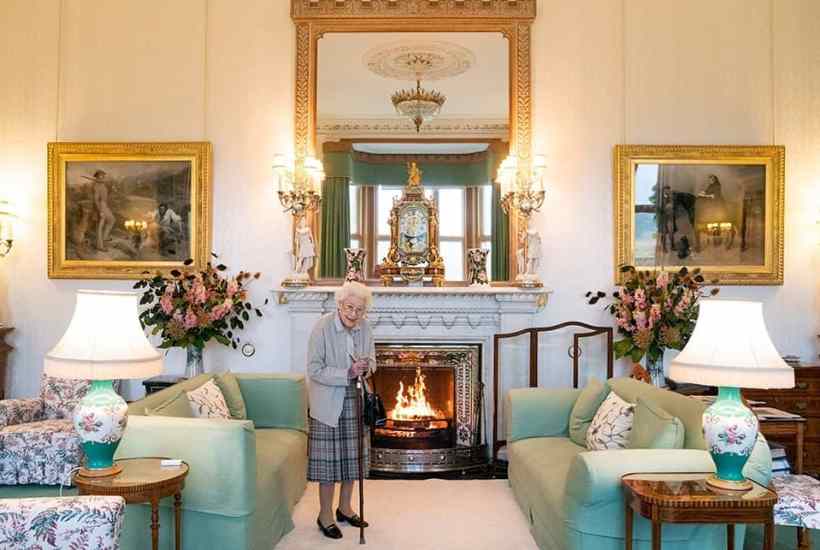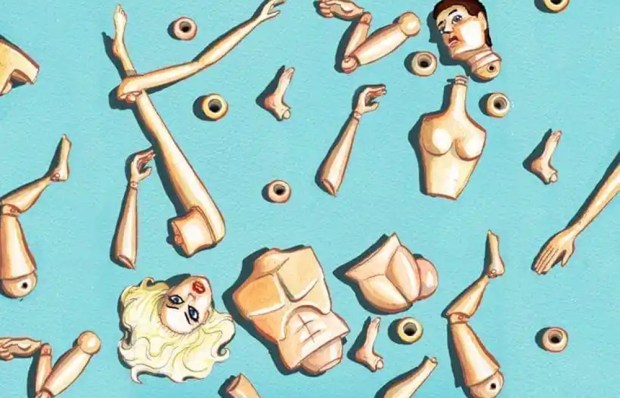In death, as in life, Elizabeth II has been a unifying force for her country. For all the political rancour of recent years, this week has revealed a country at ease with itself. People of all political persuasions have come together to show their respect – in Scotland just as much as in England. It has been a reminder of what a force for good a monarch can be when he or she devotes their life to service.
After the Queen’s coffin was transferred from Balmoral Castle to Holyroodhouse, up the Royal Mile to St Giles’ Cathedral, members of the public lined up to see it as it lay in state. Nicola Sturgeon was as effusive in her tributes as any Westminster politician. The new King was heard by the Scottish parliament with respect.
The affection of the Scottish people for Queen Elizabeth II, and their support for the institution of the monarchy, should not come as a surprise. In the independence referendum of 2014 the ‘Yes’ campaign was at pains to make clear that the ‘Queen of Scots’ would remain head of state come what may. Even those who see Scotland as a prisoner of the Union seem reluctant to extend that narrative to the monarchy.
It was, after all, the Scottish royal house which took over when James VI of Scotland acceded to the English throne. The only bone of contention was over the name, Elizabeth II. As Sturgeon has rightly pointed out, the late Queen was the first Elizabeth to reign over Scotland, so north of the border it was not unreasonable to call her Elizabeth, Queen of Scots. Such a discrepancy does not arise with the new King, who is the third King Charles both north and south of the border.
England and Scotland shared a head of state for more than 100 years before political union. The monarchical ties are more strongly embedded than the political ones and underlie the union of peoples.
When the Scottish and English are asked for their opinions on politics and on society, polls show that each year our views become more similar. On the big issues of the day there is often more difference in opinion between the south-east and south-west of England than between Scotland and England. The countries have modernised in the same way and our cultures have adapted in the same way. In both countries, for instance, Polish is one of the most spoken languages.
Like so many Britons, Elizabeth II had Scottish ancestry. As well as being a descendant of James VI of Scotland, she had a Scottish mother. She could have claimed to be more Scottish than she was English (as can King Charles), though she simply thought of herself as British. The Queen saw Scotland as more than merely a corner of her realm. It was her home. She divided her time between London, Windsor and Balmoral and was happiest, it’s said, in Balmoral. Nowhere did she have a closer relationship with the local people, who report frequent and friendly meetings when the Queen was walking her dogs or in the butcher’s shop in nearby Ballater.
As this week has demonstrated, Scotland is not an appendage of England but at the heart of the Union – as it has been since the Union of the Crowns. If the institution of the monarchy is the book spine which holds together the pages of the United Kingdom, the social and family ties are the glue. It’s no real surprise that the Scottish people decided eight years ago to remain in a political union with England, Wales and Northern Ireland. Why would they want to make foreigners out of members of their own family? Politicians regularly underestimate the importance of family ties.
The strength of the Union is unlikely to falter with the accession of Charles III. He is well aware of the need to be seen across the United Kingdom. As well as taking the time to meet mourners in Edinburgh, he travelled to Northern Ireland and to Wales, his affection for which he demonstrated for so many years as Prince of Wales. As the King reminded us this week, never once through the Troubles did the Queen abandon hope for Northern Ireland – and she did everything she could to promote peace, most remarkably in meeting and shaking hands with Martin McGuinness.
The Union has often seemed under tension in recent years, both from the drive for Scottish independence and the unsatisfactory post-Brexit arrangements. As we pass into a new reign and a new era, with nationalist forces rising across Europe, no one can guarantee that the Union will survive. But the King and our shared monarchy will stand as a reminder that the four nations share the same heritage, and that whether political matters are settled at Westminster, Holyrood, Cardiff Bay or Stormont, we are united. We owe a great debt to Elizabeth II for reminding us of this.
Got something to add? Join the discussion and comment below.
Get 10 issues for just $10
Subscribe to The Spectator Australia today for the next 10 magazine issues, plus full online access, for just $10.
You might disagree with half of it, but you’ll enjoy reading all of it. Try your first month for free, then just $2 a week for the remainder of your first year.














Comments
Don't miss out
Join the conversation with other Spectator Australia readers. Subscribe to leave a comment.
SUBSCRIBEAlready a subscriber? Log in